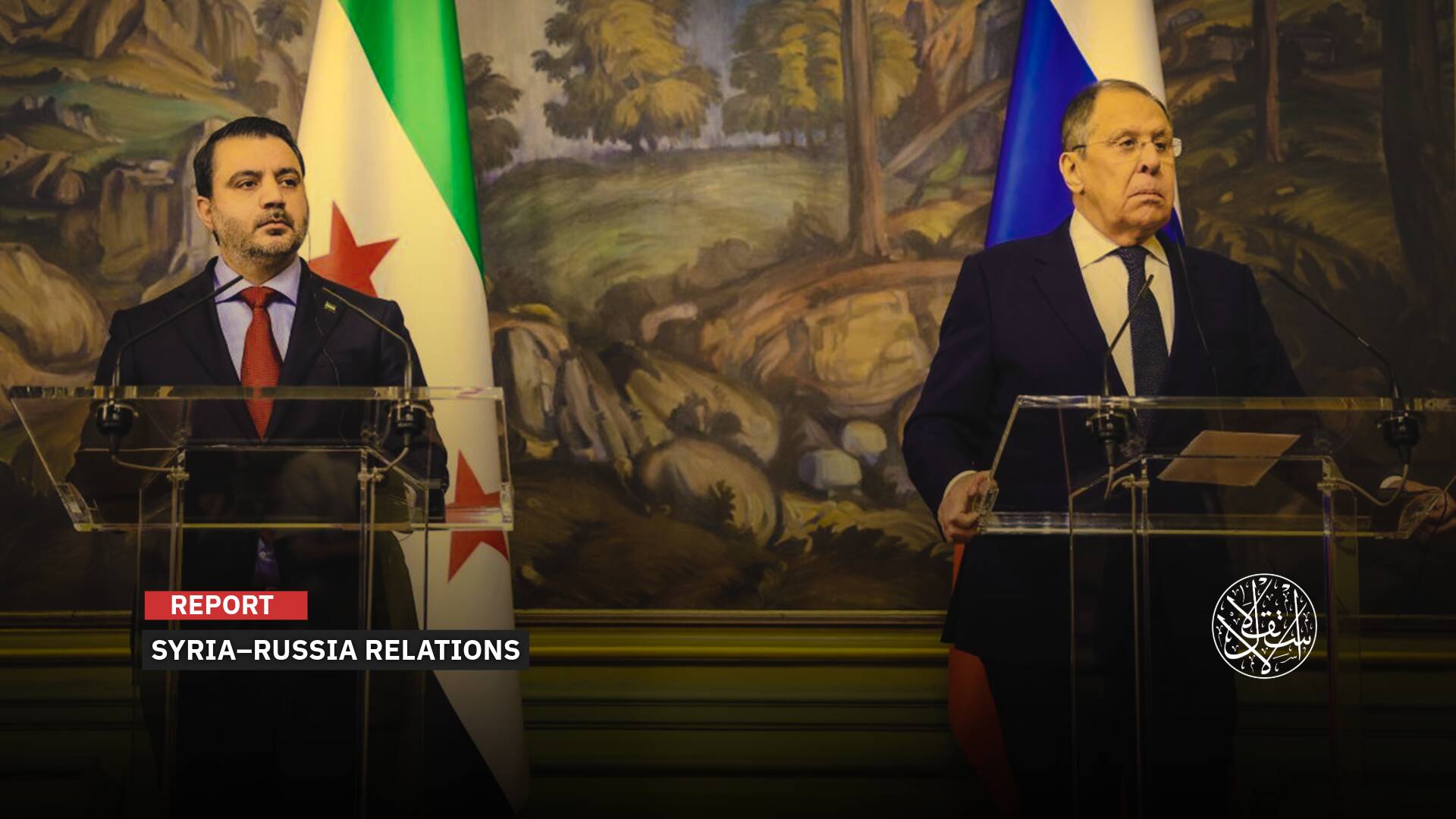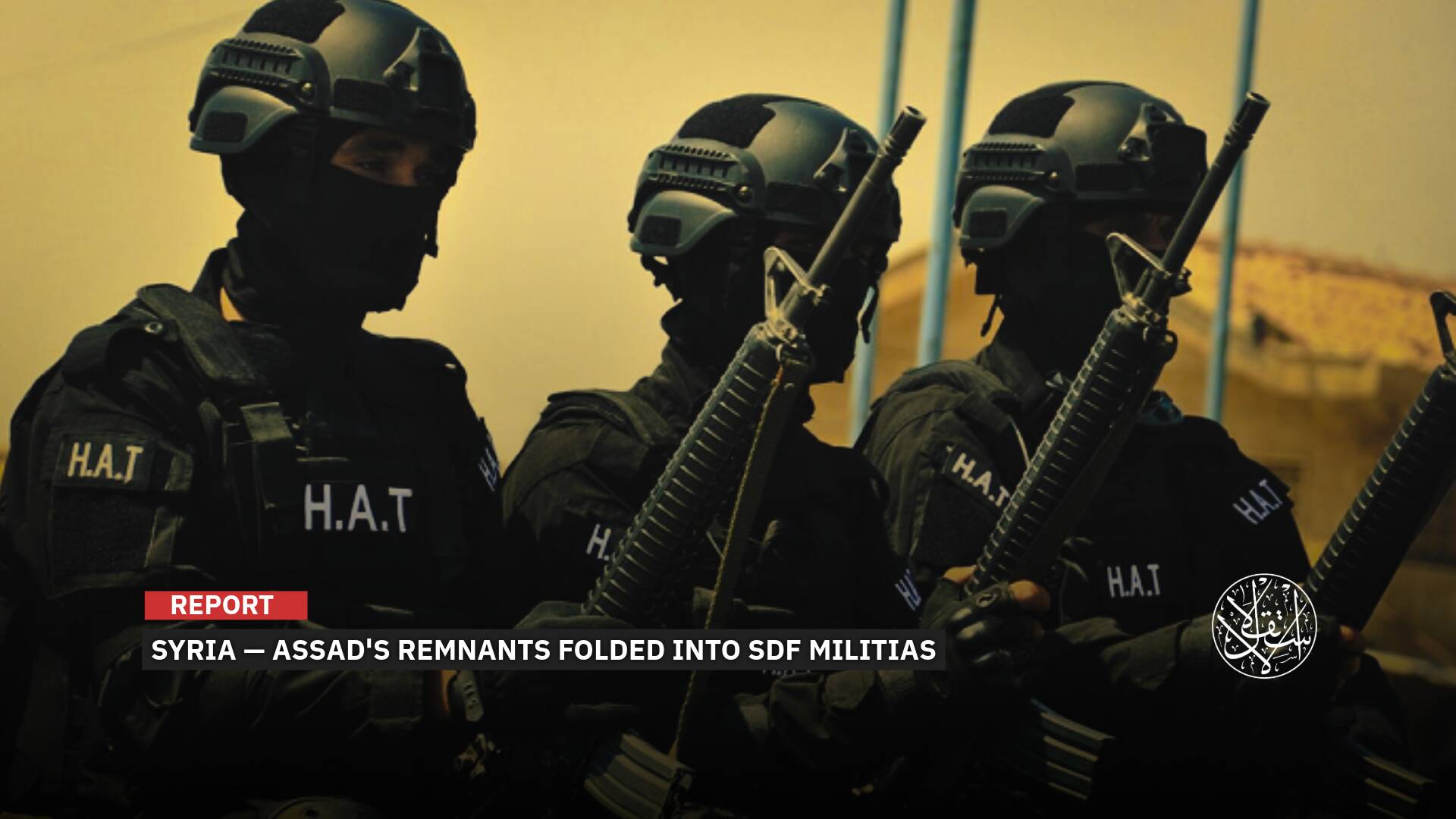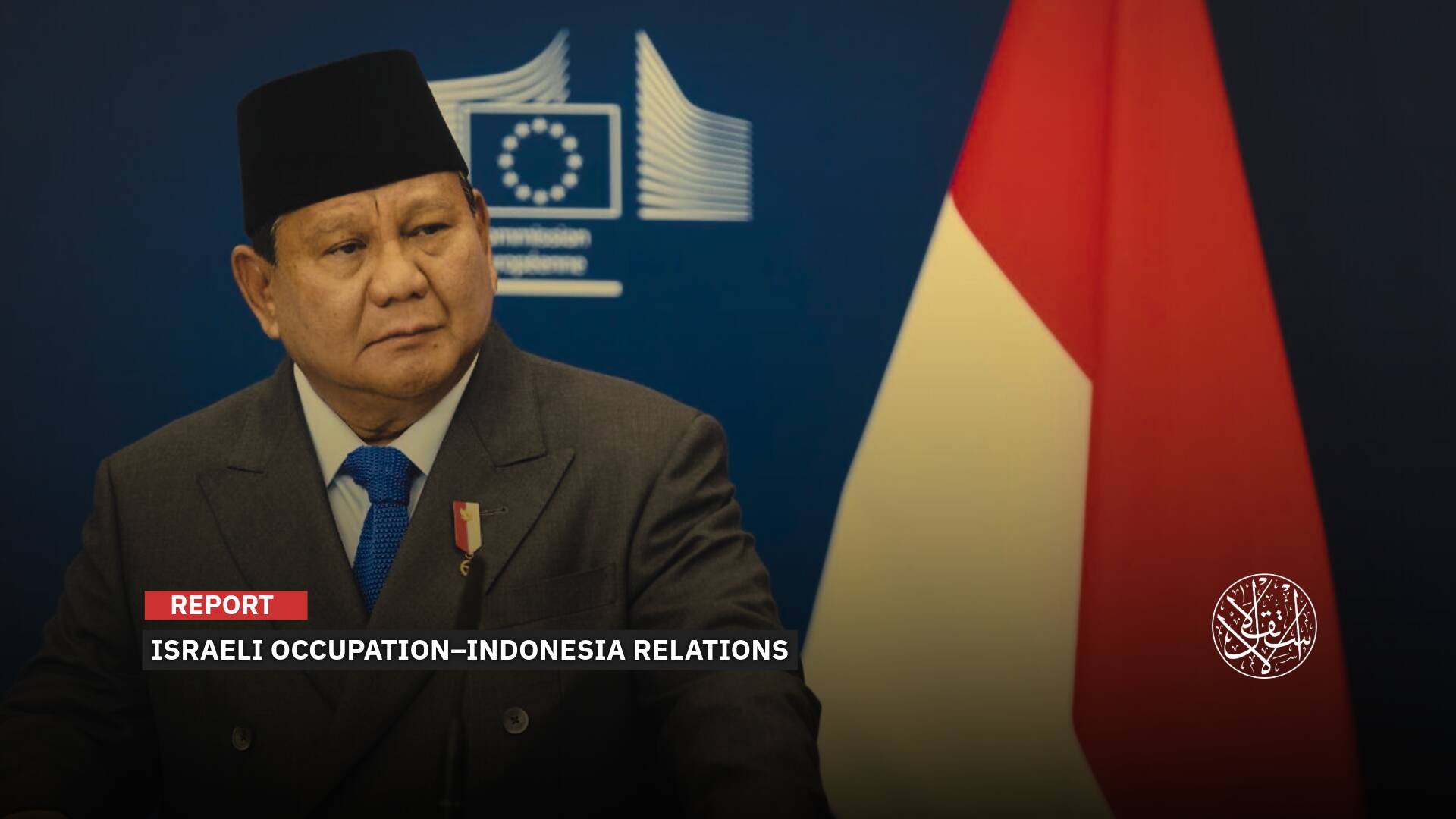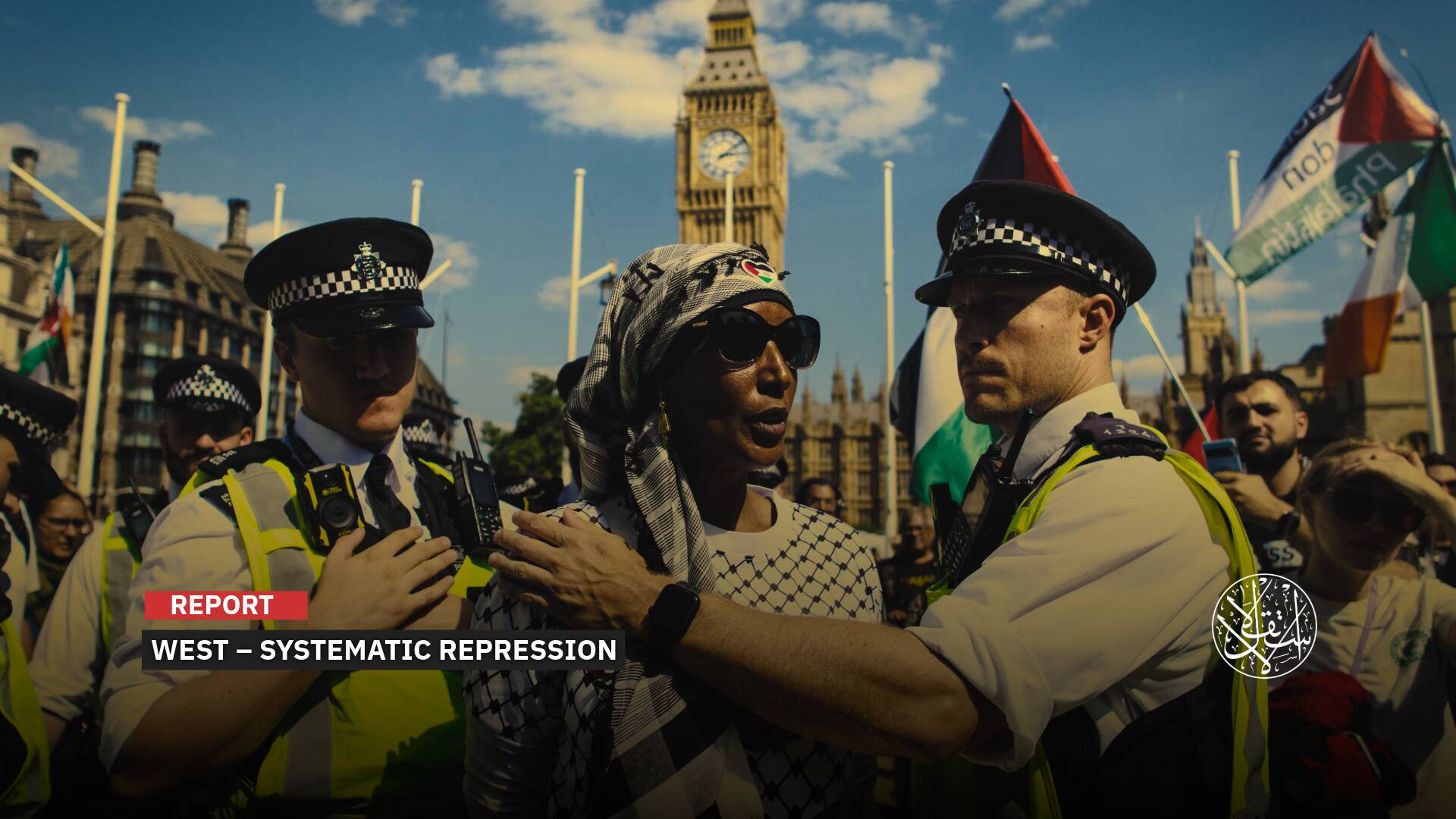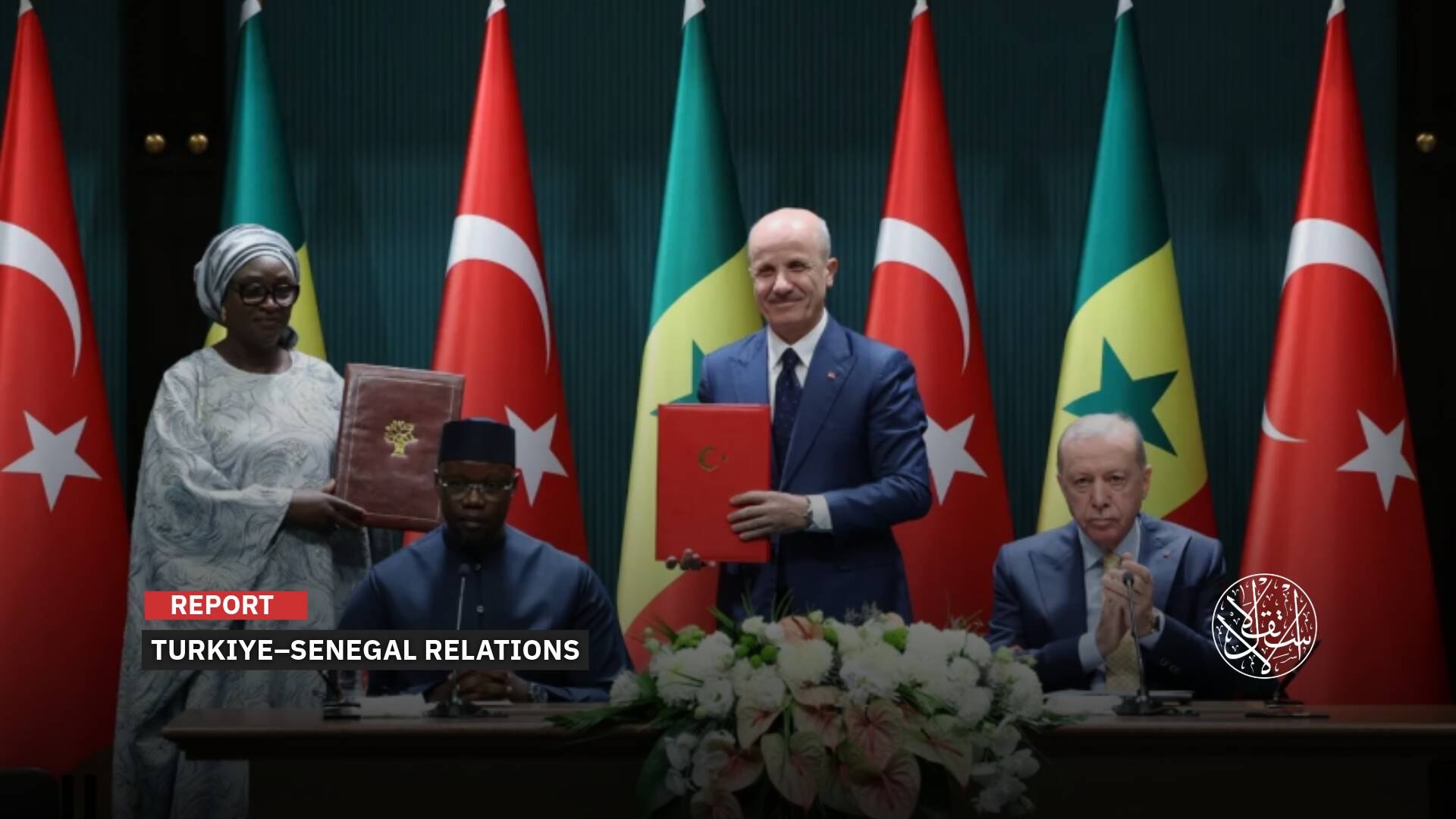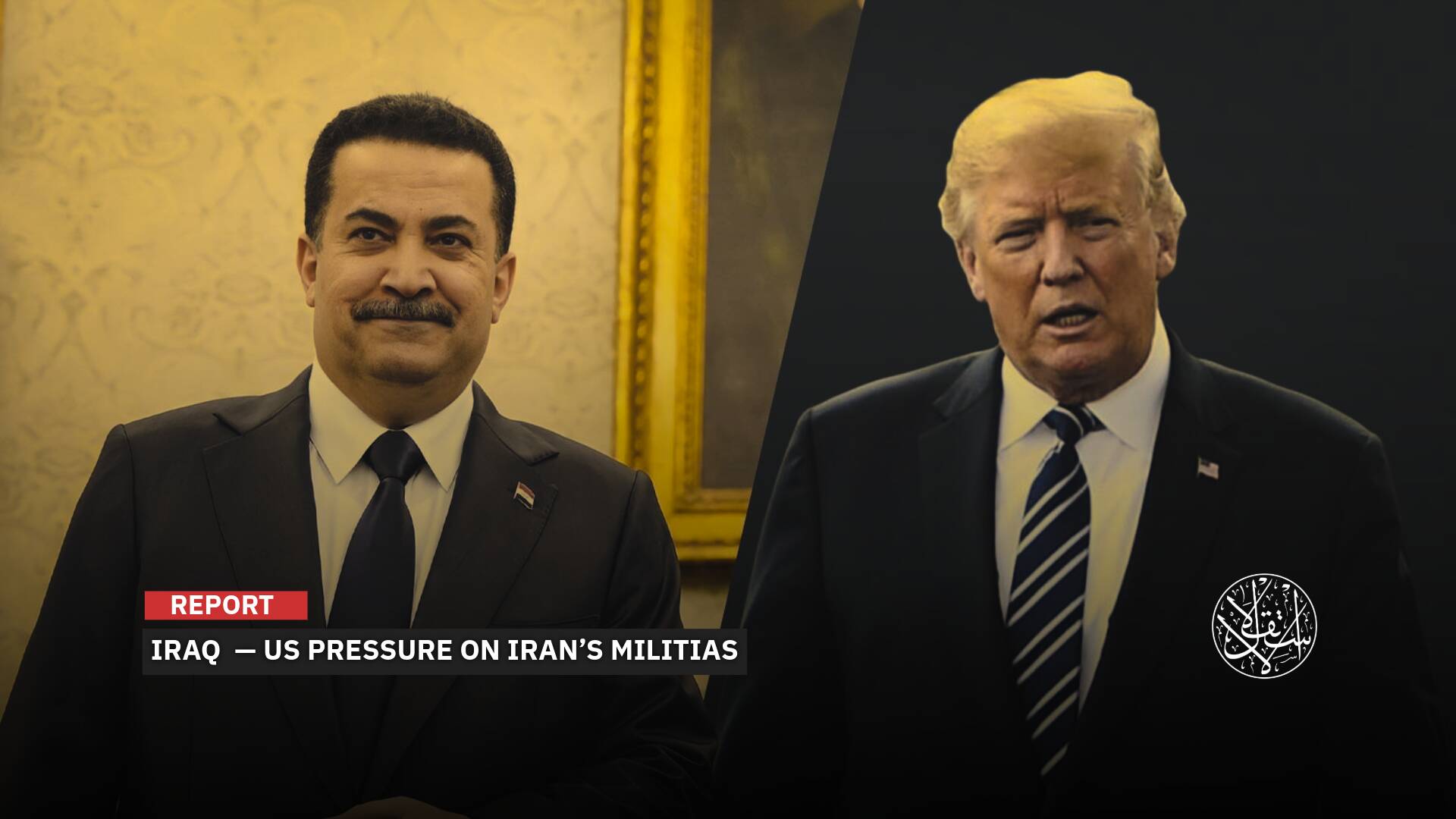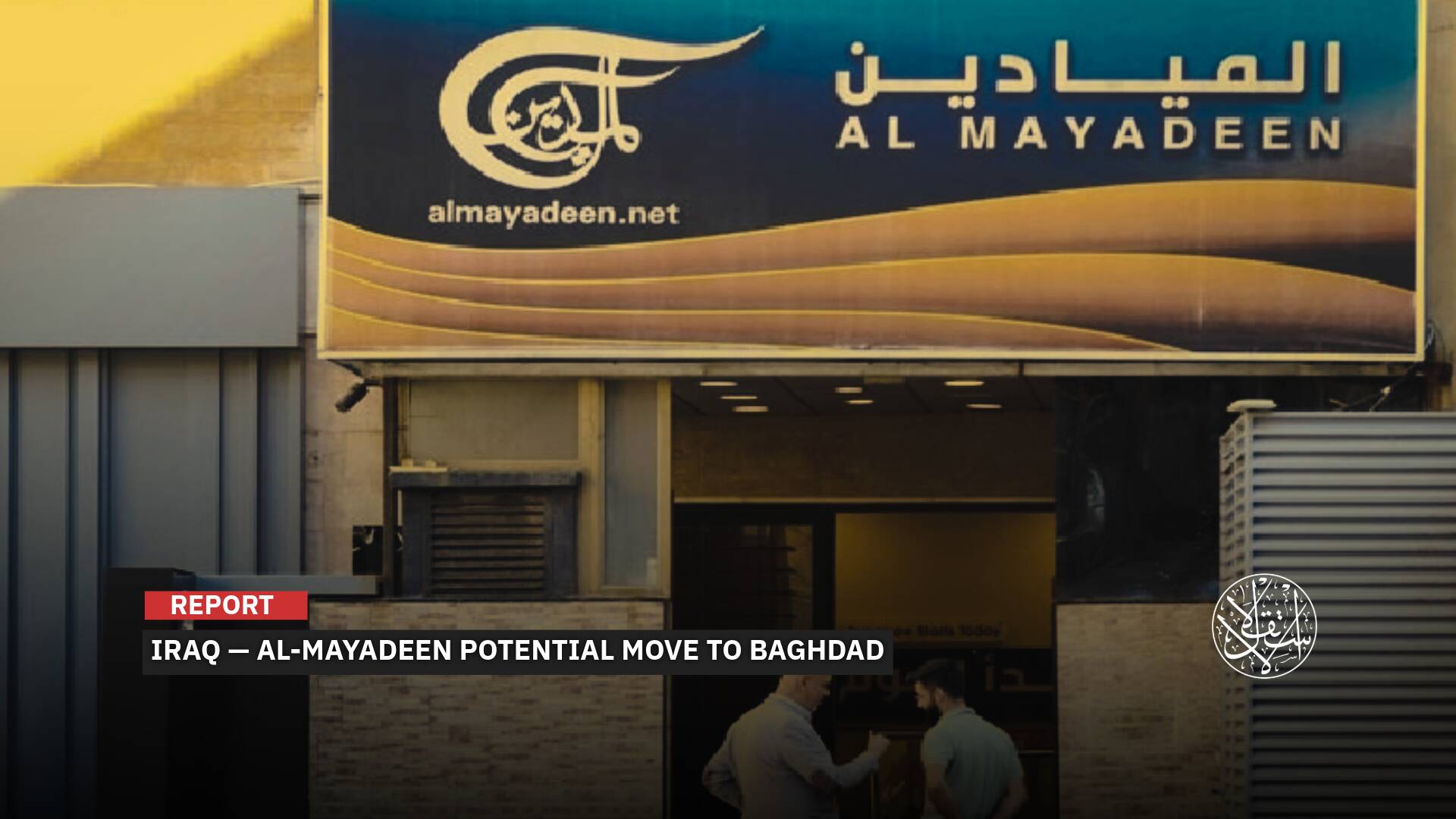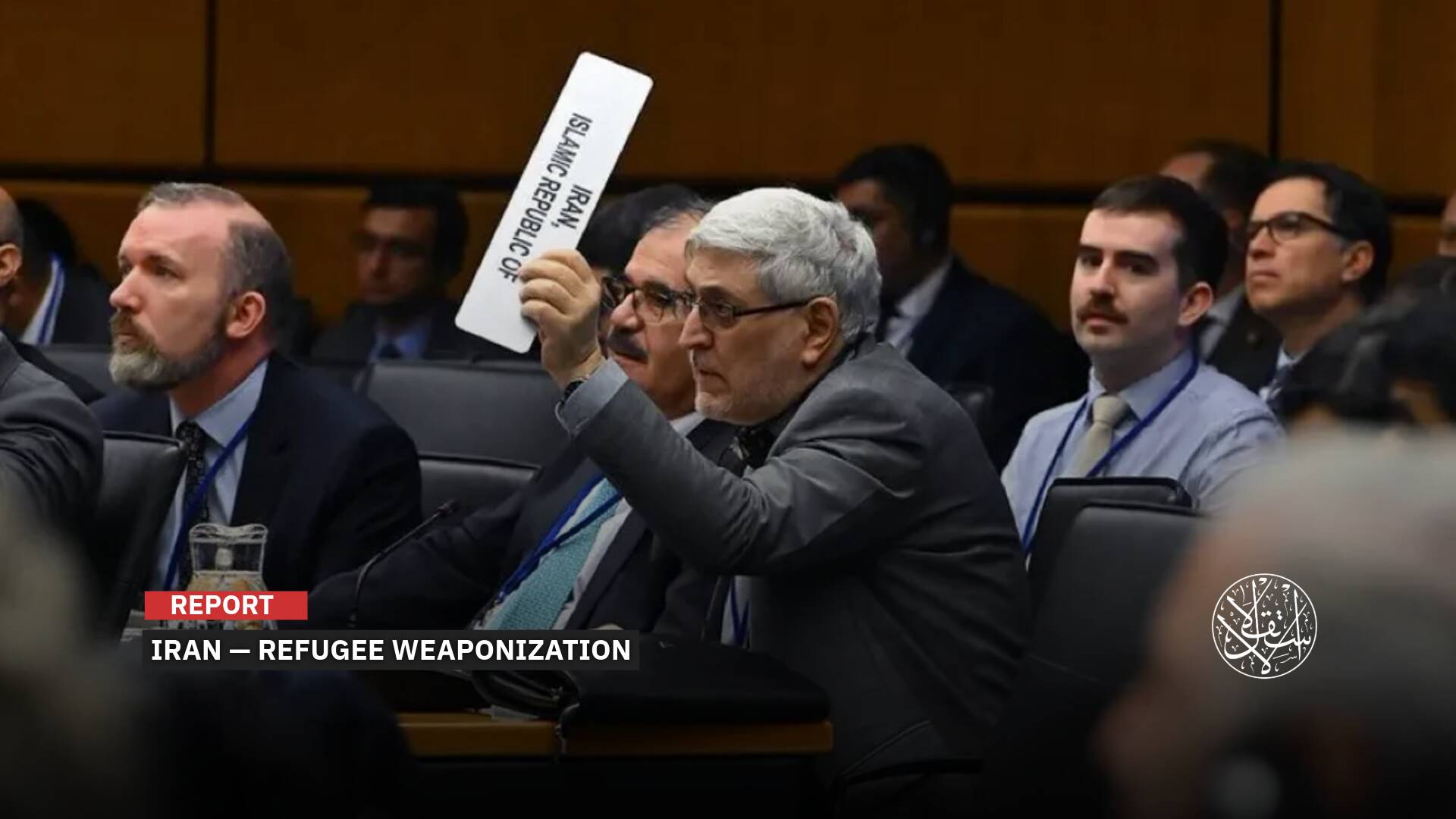To Deter ‘Israel’: Is Turkiye Really Planning Military Bases in Syria?

What worries “Israel” most is that Turkiye's presence in Syria brings Ankara closer to its borders.
Recent reports have suggested that the Syrian government has allocated a sovereign military base in Palmyra, Homs, to Turkiye as part of alleged new arrangements that could shift the military balance against “Israel.”
The rumors, which surfaced on March 25, 2025, were attributed to Reuters. However, a search of the agency’s website found no such report, nor did Syria’s Ministry of Defense issue any official statement on the matter.
Despite this, Syrian political sources told Al-Estiklal that discussions are underway regarding Turkiye's military support for Syria, reinforcing the Syrian state, and “Israel’s concerns” over such a strategic alliance.
Sources reveal that new Turkish military agreements are set to challenge Israeli aggression in Syria and put a stop to its relentless airstrikes.
What troubles “Israel” even more is that Turkiye’s military presence in Syria brings Ankara closer to “its borders.”
Officials in “Tel Aviv” are increasingly concerned by Turkish statements tying the liberation of Damascus to that of Occupied Jerusalem, sparking speculation: Could a Turkish-Israeli confrontation be looming in Syria?
Palmyra Base Controversy
An investigation by Al-Estiklal into claims that Turkiye has taken over the Palmyra and T-4 airbases in Syria reveals that these speculations emerged following Israeli airstrikes on the sites on March 21–22, 2025.
Israeli media later reported escalating tensions between “Israel” and Turkiye over military influence in Syria, particularly after these strikes.
On March 24, 2025, “Israel’s Walla” claimed that the Syrian government was negotiating with Turkiye to hand over a military base in Palmyra in exchange for economic, military, and political aid.
The report also asserted that Turkiye’s expanding military presence east of Homs is a growing concern for “Israel.”
“Israel’s Alma Research Center,” founded by Lt. Col. (Res.) Sarit Zehavi, further amplified the Reuters claim—despite no such publication by the agency—alleging that Turkiye had taken control of the base “Israel” had bombed.
The reality, however, seems to trace back to a Reuters report published on February 4, 2025, which detailed talks between Turkish President Recep Tayyip Erdogan and Syrian leader Ahmed al-Sharaa. The discussions centered on a defense agreement that would involve the establishment of airbases in central Syria.
Israeli analysts have since linked these talks to fears of a potential Turkish response following the airstrikes in Palmyra, fueling speculation about an imminent power struggle between two regional forces vying for post-war dominance in Syria.

Ankara and Damascus are reportedly in talks over a potential defense agreement that could reshape the military landscape in Syria, a development raising alarm in “Israel.”
According to four sources cited by Reuters, Syrian leader Ahmed al-Shara and Turkish President Recep Tayyip Erdogan are expected to discuss the establishment of Turkish airbases in central Syria and a Turkish role in training Syria’s newly restructured military.
The agreement, according to sources, would allow Turkiye to expand its military footprint in Syria, granting it access to Syrian airspace for strategic operations. Among the sources were a senior Syrian security official, two foreign intelligence sources based in Damascus, and a high-ranking regional intelligence officer.
If finalized, this would mark the first known strategic defense arrangement under Syria’s new leadership, signaling a shift in regional alliances.
Alma Center reported that Turkiye is planning to establish multiple military airbases in Syria, taking advantage of existing infrastructure, particularly in Palmyra. The report claims Turkiye has already moved troops and military equipment into the Menagh airbase in northern Syria, which is now operating under joint Turkish-Syrian coordination.
According to Alma, Ankara has been upgrading the base, installing air defense systems, radars, and additional military equipment aimed at strengthening Syria’s aerial defense capabilities. Analysts at the center suggest these moves reflect Turkiye’s long-term strategy for deepening its military presence in Syria.
Tensions in the region escalated further when Israeli airstrikes targeted military facilities in Palmyra and T-4 airbase over consecutive nights. Some reports linked these strikes to Israeli Occupation’s concerns over Turkiye’s growing influence in eastern Syria. However, Israeli war sources denied a direct connection, insisting the strikes were part of broader efforts to neutralize remaining military threats in Syria.
Israeli media outlets later circulated claims—attributed to Reuters—that Turkiye was planning to transform the Palmyra base into a military facility on par with Ramstein, the U.S. airbase in Germany. According to these unverified reports, Ankara allegedly informed major international powers, including the United Nations, that it considers the base “Turkish sovereign territory” and warned that any Israeli strike on the facility would trigger a direct military response.
These reports surfaced amid a series of Israeli strikes targeting Syrian military installations, including repeated attacks on the T-4 airbase. Israeli military sources have justified these operations as necessary to counter what they describe as Syria’s “strategic military capabilities.”
The growing Turkish military presence in Syria is fueling anxieties in Tel Aviv. Israeli analysts argue that allowing Turkiye to establish a foothold in key Syrian airbases could significantly impact Israeli Occupation’s ability “to operate” freely in Syrian airspace.
Beyond the military ramifications, political rhetoric from Ankara is amplifying Israeli anxieties. Turkish officials have increasingly drawn comparisons between the fates of Damascus and Occupied Jerusalem, a narrative that, from the Israeli Occupation’s perspective, heightens the possibility of a broader confrontation with Turkiye in the region.
A second major concern for “Israel” is the possibility that Turkish fighter jets, operating from these bases, could challenge Israeli air “operations” over Syria, effectively reviving Syria’s air defense capabilities after being previously destroyed by the Israeli Occupation.
Israeli war officials also worry that if Turkiye establishes a base in Homs province, its radar coverage could extend as far as the occupied Golan Heights—undermining “Israel’s longstanding efforts” to neutralize Syrian air defense systems.
Alma has highlighted a “potential scenario” in which Turkish fighter jets could engage Israeli aircraft over Syrian airspace. Reports from Syria have already indicated incidents involving aerial encounters between Israeli and Turkish warplanes, though neither side has publicly confirmed these claims.
According to the center, if confirmed, such incidents would highlight the growing risks of Turkiye’s expanding military footprint in Syria. The report cautions that, much like Russia before it, Turkiye could pursue various retaliatory measures, including deploying its own fighter jets to counter Israeli attacks.
Beyond direct military confrontations, “Israel” also fears that Turkiye could enhance Syria’s defensive capabilities in multiple ways—by providing intelligence on Israeli attacks, exposing details of “Tel Aviv’s military activities,” and supplying Damascus with advanced conventional weapons. These could include air defense systems, missile technology, and drones, significantly altering the strategic balance in the region.

Alma predicts that “Israel” will intensify its intelligence efforts to avoid direct clashes with Turkish forces. It also suggests that “Israel” may seek to establish a military coordination mechanism with Turkiye, similar to the one it maintains with Russian forces in Syria.
When asked about Turkiye’s growing influence in Syria on March 24, 2025, Israeli Foreign Minister Gideon Sa’ar stated that “Israel” does not seek confrontation with Ankara in Damascus or anywhere else.
On the same day, Yedioth Ahronoth and Channel 12 reported that Prime Minister Benjamin Netanyahu was set to convene a security meeting to discuss “Turkiye’s expanding role” in Syria. According to the reports, Netanyahu is closely monitoring the rapprochement between Syria’s new leadership and Turkiye and will address what they called “Turkiye’s increasing dominance in Damascus.”
Israeli media outlets, citing security sources on March 23, 2025, highlighted growing concerns in Tel Aviv over a potential direct confrontation with Turkiye in Syria. The reports stated that “Israel’s security agencies” had already held consultations on the situation in Damascus.
According to these sources, the Syrian army is working to rebuild military bases and missile capabilities, while Syrian-Turkish negotiations are reportedly underway to transfer areas near Palmyra to Turkish forces in exchange for support to Damascus.
Sources also indicated that Netanyahu has instructed his advisors to emphasize in the media that an Israeli-Turkish confrontation in Syria is imminent.
In recent weeks, Israeli security analysts have increasingly warned of the risk of a proxy war between Ankara and Tel Aviv on Syrian soil.
An Agreement in the Making?
Syrian political sources told Al-Estiklal that a military agreement between Syria and Turkiye—possibly including Turkish deployments at Syrian airbases—may have already taken shape, though it remains unannounced.
These sources believe Israeli Occupation’s repeated airstrikes on Palmyra and the T-4 airbase stem from their role in the emerging Syrian-Turkish military arrangement.
The leak claiming that Syria has handed over the Palmyra base to Turkiye—falsely attributed to Reuters—may have been an attempt to provoke Damascus or Ankara into revealing details of their military discussions.
On March 26, 2025, Al-Jazeera Net quoted sources from Syria’s Defense Ministry stating that “joint military installations between the Syrian and Turkish armies are expected to be established in various locations.”

Syrian military sources indicate that joint military installations with Turkiye may include airbases in the north, east, and center of the country, notably Menagh, Deir ez-Zor, T-4, and Palmyra.
These sources do not rule out the deployment of Turkish drones at these bases, similar to how Turkiye has utilized drone operations in Libyan government-controlled areas in the west.
“The airports will serve as training and development centers for Syrian forces under an expected agreement, which may explain Israel's recent airstrikes as a sign of preemptive concern and warning,” they stated.
On March 20, 2025, the Turkish military sent a convoy to Menagh Airbase, north of Aleppo, which is expected to become the first joint base between Ankara and Damascus.
Hurriyet reported that Ankara may supply the Syrian army with advanced defense industry products as part of military cooperation. This could also include Turkish military advisors assisting in restructuring Syria’s new armed forces after the end of the Assad family's rule.
These developments come three months after near-daily Israeli incursions into Syrian border areas near the occupied Golan Heights.
Following the overthrow of Bashar al-Assad by opposition factions in December, “Israel” launched hundreds of airstrikes on military installations and naval and air bases across Syria. “Israel” stated that its goal was to prevent the new government from acquiring the former army’s arsenal.
Israeli forces also advanced into the demilitarized buffer zone in the Golan Heights, encroaching on the edge of the occupied Syrian territory.
In February, Israeli Prime Minister Benjamin Netanyahu called for the complete demilitarization of southern Syria, warning that his government would not tolerate the presence of security forces from the new Syrian authorities near Israeli Occupation’s borders.
During an emergency Arab League summit in Cairo in March, Syria’s transitional president, Ahmed al-Sharaa, urged the international community to “pressure Israel to withdraw immediately from southern Syria.”
On the morning of March 25, the Israeli military announced that it had engaged in an exchange of fire with armed elements in southern Syria.
At least five people were killed in an Israeli airstrike on a town in Daraa province, southern Syria, according to local authorities. With Israeli Occupation forces advancing and civilians fleeing, tensions are mounting—raising the prospect of a Turkish intervention on the horizon.
Since Assad’s fall, several actors—including Syria’s new administration and Turkiye—have recognized the risk of Syria’s partition, particularly given Israeli Occupation’s support for Kurdish armed groups in the northeast.
“Israel” has long hinted at backing a Kurdish state along Turkiye’s borders as a counterbalance to both Iranian and Turkish influence.
According to The Media Line, recent developments in Syria, which have left the country vulnerable to fragmentation, have led both Turkiye and “Israel” to deploy forces—each in different regions. Turkish President Recep Tayyip Erdogan’s post-Assad policies in Syria are pushing Turkiye and “Israel” toward a direct military confrontation, the American news agency warned.
On January 6, Erdogan declared that Turkiye would not allow Syria to be divided and would take necessary measures against any threats of fragmentation. He said the end of Kurdish militants in Syria is near, vowing that terrorism had no place in the region and that those who support terrorists will be buried with their weapons.
Subsequently, Abdullah Ocalan, the imprisoned leader of the Kurdistan Workers’ Party (PKK), announced the group’s dissolution. Meanwhile, the Syrian Democratic Forces (SDF) signed an agreement with the new Syrian government to integrate into the national army, complicating “Israel’s” ability to leverage the Kurdish issue.
Sources
- Erdogan says end is near for Kurdish militants in Syria
- Exclusive: Syria's Sharaa to discuss defense pact with Turkey's Erdogan, sources say
- Syria – Turkish Presence in Military Airports and Aerial Friction with Israel
- What is the truth behind the talk of allocating a "sovereign" military base for Turkiye in central Syria? [Arabic]
- Hebrew media: Netanyahu holds security meeting to discuss "growing Turkish influence" in Syria [Arabic]
- Why are the outlines of a military agreement between Turkiye and Syria raising concerns? [Arabic]


